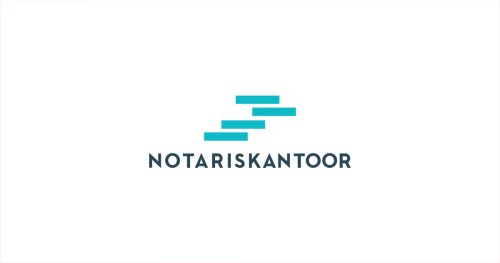Best Collaborative Law Lawyers in Ghent
Share your needs with us, get contacted by law firms.
Free. Takes 2 min.
Free Guide to Hiring a Family Lawyer
List of the best lawyers in Ghent, Belgium
About Collaborative Law in Ghent, Belgium
Collaborative Law is a modern approach to resolving legal disputes, especially in family law, without going to court. In Ghent, Belgium, this method enables parties to work together with specially trained lawyers to find solutions through open dialogue and negotiation. Collaborative Law focuses on reaching an agreement that benefits everyone involved, promoting transparency and cooperation rather than adversarial conflict. This approach is recognized and increasingly encouraged within Belgian legal practice, particularly for issues like divorce, child custody, and property division.
Why You May Need a Lawyer
There are many situations when you might require legal assistance in Collaborative Law. Common scenarios include:
- Divorce or legal separation, where both parties want an amicable resolution
- Disputes regarding child custody, visitation, or child support
- Property and asset division following separation
- Spousal support or alimony arrangements
- Drafting or reviewing family agreements such as prenups or postnups
- Inheritance and succession planning among family members
- Business partnership disputes involving family-owned businesses
Collaborative Law is particularly helpful for those who wish to maintain a respectful relationship after settlement, avoid lengthy court proceedings, and control the outcome of their disputes rather than having a court decide for them.
Local Laws Overview
Belgium has incorporated Collaborative Law principles into its legal system, particularly within the context of family law. In Ghent, as throughout Belgium, the court encourages parties to seek amicable solutions before beginning court actions, and Collaborative Law provides this alternative process.
Some important aspects include:
- Both parties must agree to try the collaborative process and sign a participation agreement
- Collaborative Law lawyers must receive official training in negotiation and conflict resolution
- If the process fails, the collaborative lawyers must withdraw and cannot represent their clients in court litigation
- The process remains confidential, and information cannot be used in court if negotiations break down
- Belgian law recognizes written agreements resulting from Collaborative Law procedures as binding, provided legal requirements are met
Collaborative Law in Ghent is also supported by the local bar association and specialized practice groups, ensuring practitioners are up to date with the latest processes and ethical standards.
Frequently Asked Questions
What types of cases are suitable for Collaborative Law in Ghent?
Collaborative Law is best suited for family law matters such as divorce, child custody, property division, spousal support, cohabitation agreements, and some inheritance issues where both parties are willing to cooperate.
How is Collaborative Law different from mediation?
While both processes aim to resolve disputes amicably, Collaborative Law involves each party being represented by their own specially trained lawyer. Mediation usually involves a neutral third-party mediator without individual representation.
What happens if we cannot reach an agreement?
If an agreement cannot be found, the collaborative lawyers must withdraw, and the parties are free to pursue traditional litigation with new legal representation.
Is the agreement reached through Collaborative Law enforceable?
Yes, once all parties have signed the settlement agreement and, if necessary, the court approves it, the agreement is legally binding under Belgian law.
Are all lawyers in Ghent qualified to offer Collaborative Law services?
No, lawyers must complete specialized training in Collaborative Law before offering such services. It is important to select a lawyer with the proper accreditation.
How long does the Collaborative Law process usually take?
The length of the process depends on the complexity of the issues and the willingness of parties to cooperate. Most cases resolve faster than traditional court proceedings, often within a few sessions.
Will my information remain confidential during the process?
Yes, the collaborative process is confidential. Matters discussed cannot be disclosed to third parties or used in court should the process fail.
Do I have to go to court at any stage?
Typically, you only need to attend court to homologate or formalize the agreement, not to litigate the dispute itself.
Can Collaborative Law be used if there is a significant power imbalance?
Collaborative Law works best when both parties can negotiate freely. If there are concerns about coercion or a power imbalance, the process may not be suitable, but your lawyer can assess this during initial consultations.
How much does Collaborative Law cost compared to traditional litigation?
Collaborative Law is often more cost-effective than litigation because it tends to resolve disputes faster and avoids prolonged court battles, although specific fees depend on the complexity and length of the process.
Additional Resources
If you would like more information or wish to seek further help, consider the following resources:
- Ghent Bar Association - provides lists of trained Collaborative Law practitioners in the region
- Belgian Federal Mediation Commission - offers information on collaborative and alternative dispute resolution processes
- Local family law centers and social services in Ghent for support and first-line legal advice
- Certified Collaborative Law practice groups in Belgium for educational materials and referrals
- The Royal Federation of Belgian Notaries for assistance with family and inheritance agreements
Next Steps
If you believe Collaborative Law may be suitable for your situation in Ghent, follow these steps:
- Research and select a lawyer with certified training in Collaborative Law
- Book an initial consultation to discuss your case and confirm whether the collaborative process is the right fit
- Prepare any documents or information related to your dispute or legal matter
- Discuss the collaborative agreement process, including costs and expectations, before proceeding
- If possible, speak with the other party to gauge their willingness to participate in Collaborative Law
Acting early and seeking professional advice can greatly improve the likelihood of a positive, amicable outcome for all parties involved.
Lawzana helps you find the best lawyers and law firms in Ghent through a curated and pre-screened list of qualified legal professionals. Our platform offers rankings and detailed profiles of attorneys and law firms, allowing you to compare based on practice areas, including Collaborative Law, experience, and client feedback.
Each profile includes a description of the firm's areas of practice, client reviews, team members and partners, year of establishment, spoken languages, office locations, contact information, social media presence, and any published articles or resources. Most firms on our platform speak English and are experienced in both local and international legal matters.
Get a quote from top-rated law firms in Ghent, Belgium — quickly, securely, and without unnecessary hassle.
Disclaimer:
The information provided on this page is for general informational purposes only and does not constitute legal advice. While we strive to ensure the accuracy and relevance of the content, legal information may change over time, and interpretations of the law can vary. You should always consult with a qualified legal professional for advice specific to your situation.
We disclaim all liability for actions taken or not taken based on the content of this page. If you believe any information is incorrect or outdated, please contact us, and we will review and update it where appropriate.









![Advocatenkantoor RECHT[PUNT]GENT](https://lawzana.com/storage/firms/21952/17618334752771.jpg)




